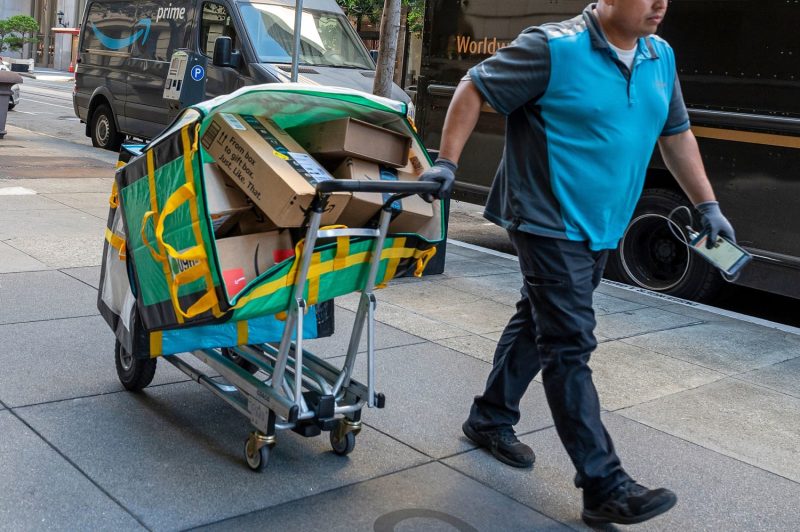Amazon Sued by D.C. AG for Allegedly Excluding Neighborhoods from Prime Delivery
The recent lawsuit filed against Amazon by the Attorney General of Washington D.C. has raised significant concerns regarding the exclusion of certain neighborhoods from the company’s Prime delivery services. This legal action sheds light on the broader issue of inequality and discrimination in access to essential goods and services.
The lawsuit alleges that Amazon’s practice of excluding certain neighborhoods from its Prime delivery service directly impacts the residents of these areas, depriving them of the convenience and benefits enjoyed by customers in more affluent neighborhoods. This exclusionary practice exacerbates existing disparities and limits access to a wide range of products available through Amazon’s platform.
By singling out specific neighborhoods for exclusion from Prime delivery, Amazon may be perpetuating systemic inequalities and reinforcing division along socio-economic lines. Access to efficient and affordable delivery services is essential, particularly in times of crisis such as the COVID-19 pandemic, where reliable access to goods is crucial for the well-being of communities.
The lawsuit also raises questions about corporate responsibility and the ethical obligations of major companies like Amazon. As a dominant player in the e-commerce industry, Amazon wields significant influence over consumer behaviors and market dynamics. With this influence comes a responsibility to ensure fair and equitable access to its services for all customers, regardless of their location or socio-economic status.
Furthermore, the lawsuit underscores the need for regulatory oversight and enforcement to prevent discriminatory practices in e-commerce and other sectors. Government agencies play a vital role in holding companies accountable for their actions and protecting the rights of consumers, particularly those in marginalized communities who may be disproportionately impacted by exclusionary practices.
In response to the lawsuit, Amazon has stated that it is committed to making its services available to all customers, emphasizing the company’s efforts to expand delivery coverage and improve access to its platform. However, actions speak louder than words, and it will be essential for Amazon to demonstrate concrete changes in its delivery practices to address the issues raised in the lawsuit.
Ultimately, the outcome of this legal battle will have far-reaching implications for the e-commerce industry and the broader conversation around equity and inclusion in business operations. The case serves as a reminder that companies must prioritize fairness and accessibility in their service offerings, and that they will be held accountable for any discriminatory practices that harm vulnerable communities.



























